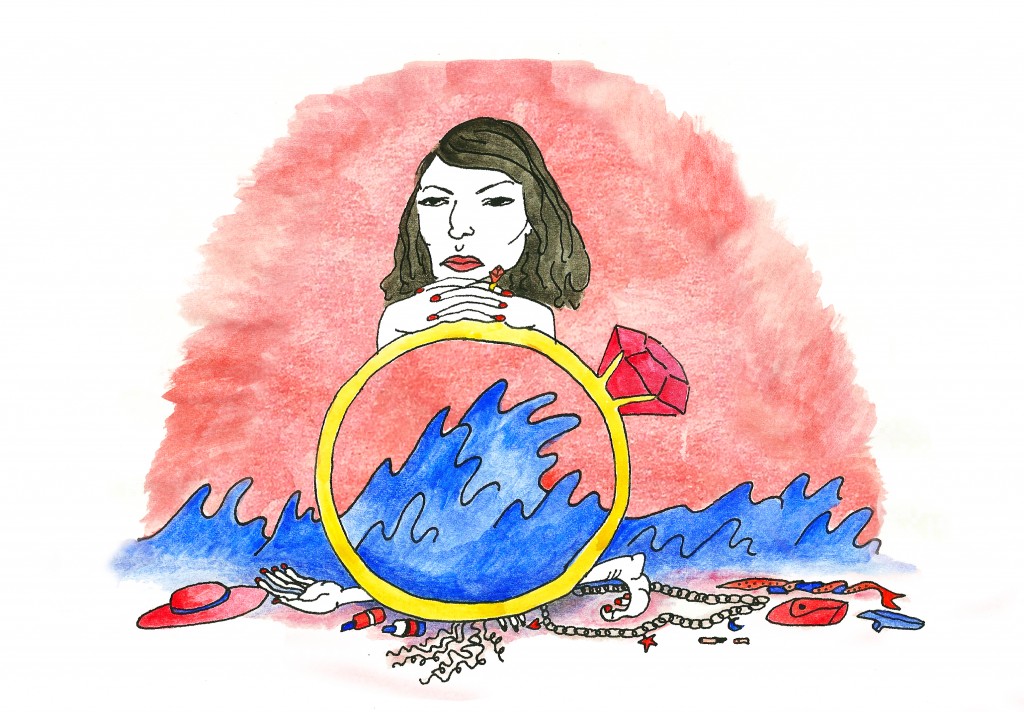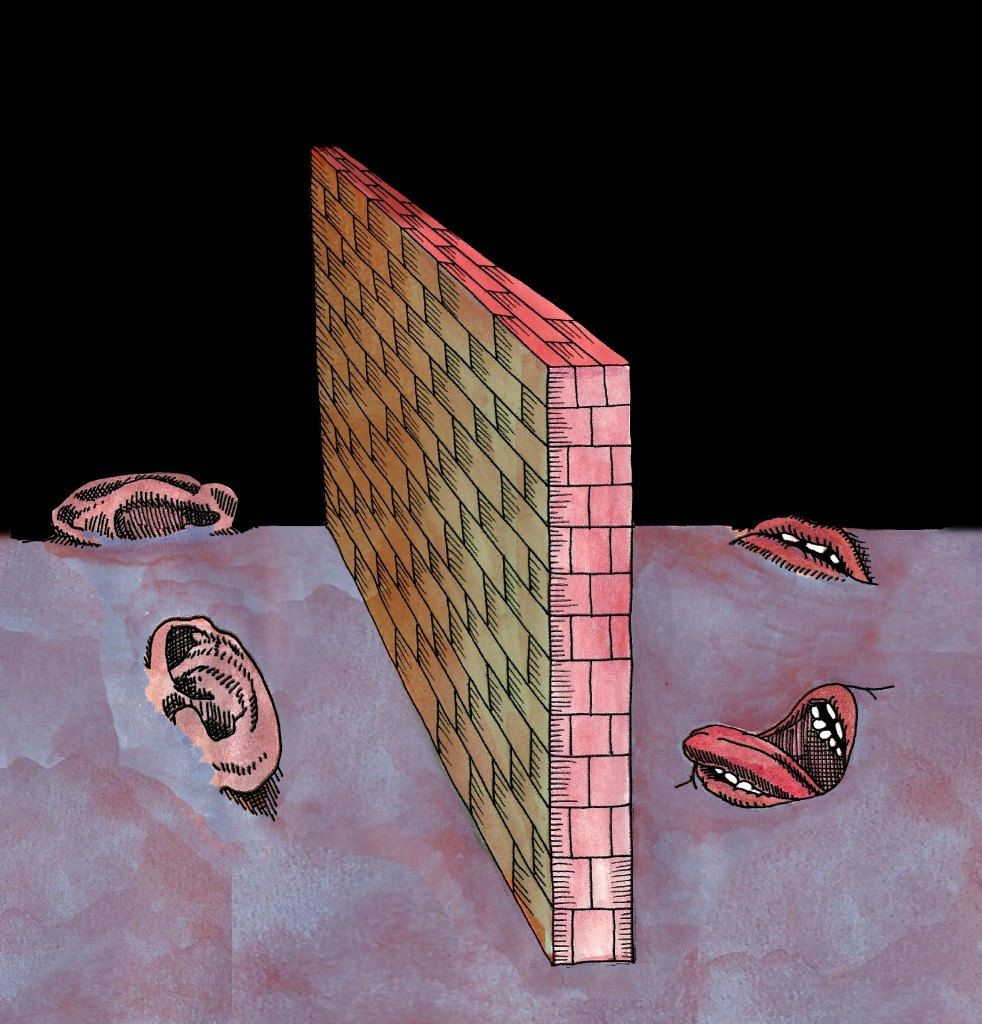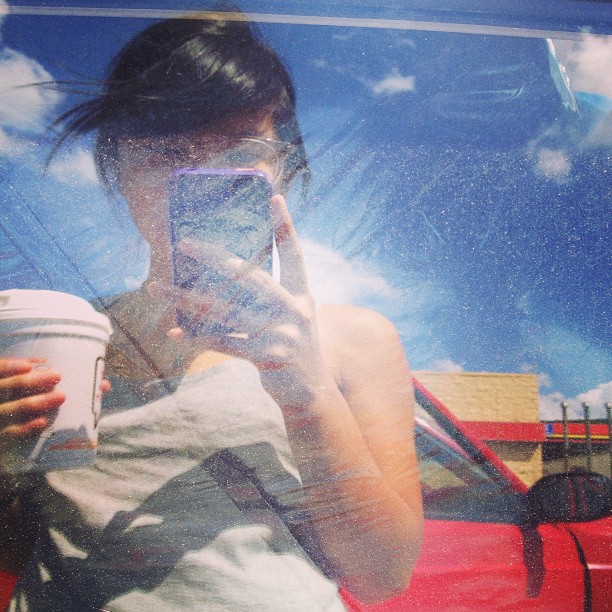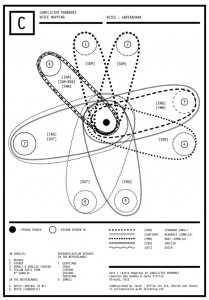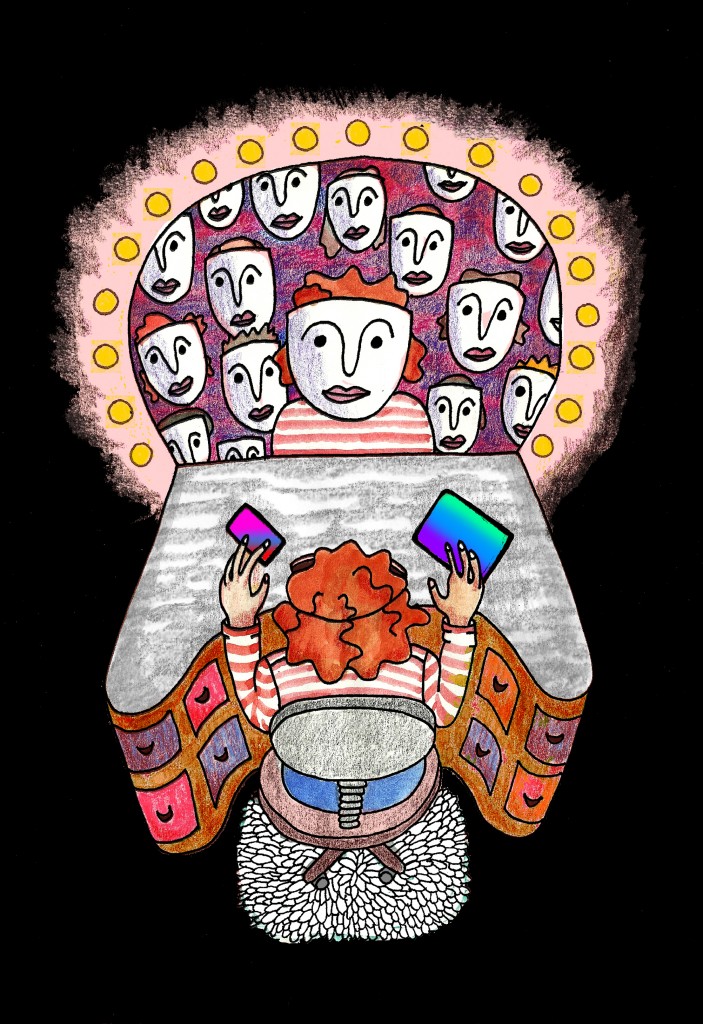A linear review of the best posts from the Full Stop blog this year
Check out Part 1 here
When Panic Takes Over — Catie Disabato, August 13
The thing all these fantastic stories about moral panic have in common is that they are stories about the victims of such panic’s fallout, sympathetic to those on whom the panic preys. When the stories take on the perspective of those panicking, or the story-makers themselves are panicking, the result is much like the freak out: emotionally incoherent, frantic, judgmental, and sometimes dangerously wrong. “The Bling Ring” is all these things.
California Hunger Strikers and the Malnourished American Conscience — Rebecca McCray, August 20
In an eight by ten foot cell in California, Todd Ashker is starving. He hasn’t eaten in nearly six weeks, and his body has begun to lose muscle mass. Exhaustion has set in, and his organ functions have slowed. In the windowless cells on either side of his, more men steadily starve. These men are isolated in the Secure Housing Unit (SHU) of California’s Pelican Bay Prison, a tidy euphemism for long-term solitary confinement. Pelican Bay is the state’s most notorious supermax prison, reserved for what officials identify as “the worst of the worst” criminal offenders.
Snaps of America — Larissa Pham, September 3
The whiskey we drank, the sunflower seeds we ate and spat, the places we slept: all make it into the digital backlog forming behind us, a froth of pixels left in our wake. My phone becomes part of the ritual of the road trip. Every morning, when we leave our chosen city at eight or nine, I nudge Cam to lean over from the driver’s seat. “Lean in,” I say, “We snap.” I always grin, he pulls a grimace, I caption it with something, and we send it off to our friends. We’ve saved everything we sent, too, so that we can scroll through all the oddities of the trip together, months from now, I imagine.
Unsteady Footing in an Unsettled Map — Silvia Mollicchi, October 3
When seeking asylum in countries such as Australia, Belgium, Germany and the Netherlands, migrants must undergo a voice test, imparted by a private Swedish company, which aims to verify the validity of their asylum claims. During a phone interview, at the other end of the receiver, a program records samples of the asylum seeker’s voice that are then analyzed to establish his or her specific geographic provenance.
Does the applicant come from a place where living is unbearable enough to justify the concession of asylum? Particular words are chosen to identify the linguistic influence prevalent in the accent, and a lifetime is reduced to a point: one name, one place.
We Never Think Alone — Helen Stuhr-Rommereim, October 9
But humans have always had a hard time thinking about how they think. The conception of the homunculus emerged in the sixteenth century in order for us to deal with this problem: Who am I? How do I think the thoughts that I think? Well, the simple explanation is that there’s a little man in my head, he thinks those thoughts that I think, he operates my body, and he is my consciousness. The homunculus helps us to confront the basic limits of our capacity to be aware of the causal forces enacting our thoughts. In other words, even in our own heads we cannot quite conceive of thinking alone.
Empathetic Satire, Perpetual Crisis, and “The Very Persistent Gappers of Frip” — Aaron Braun, October 15
This reasoning is a rehashing of the classic liberal principle of equal exchange, but one that confuses cause and effect. It’s not that a person gets what they deserve — a fact measured by the value added through work — but rather that a person’s value is measured by the fact of what they receive. It is a slippery notion of personal responsibility and one that parodies the incongruousness of Ayn Rand style individualism. “I believe we make our own luck in the world,” says Sid Ronsen, “I believe that, when my yard suddenly is free of gappers, why, that is because of something good I have done.” Here luck configures as something that can affirm a given picture of reality and individual agency, while at the same time disavowing the personal actions and material situation that preceded the gapper infestation.
Notes Towards a Study of Anthropomorphism — Daniel Neofetou, October 29
 That anthropomorphism in meat product advertising is conducive to such dissociation becomes even clearer if we turn to another expression of this stratagem in such commercials — the anthropomorphism of the meat products themselves. A paradigmatic example of this can be found in the marketing for McDonalds, which throughout its history has consistently transformed the fast food chain’s foodstuffs into humanoids. In countless commercials, hamburgers and chicken nuggets have been afforded facial features and/or limbs and frolic merrily with Ronald McDonald in McDonaldland. This surely draws attention away from the fact that these foodstuffs were once part of living animals; positing them as complete in-themselves. Reflection on the fact that McNuggets are comprised of fried meat slurry which once constituted the breast of a chicken is precluded when the McNugget is grinning at you and wearing a cowboy costume. Also, in the case of McDonalds, this was for a time reinforced by the presence of their fellow mascot Birdie the Early Bird. That is, the McNuggets’ origin in slaughter was not only clouded by their apparent autonomy as beings, but by the above delineated dynamic of their existing in the same context as a living animal whose death would be necessary for this existence, but who seemed perfectly chipper nonetheless.
That anthropomorphism in meat product advertising is conducive to such dissociation becomes even clearer if we turn to another expression of this stratagem in such commercials — the anthropomorphism of the meat products themselves. A paradigmatic example of this can be found in the marketing for McDonalds, which throughout its history has consistently transformed the fast food chain’s foodstuffs into humanoids. In countless commercials, hamburgers and chicken nuggets have been afforded facial features and/or limbs and frolic merrily with Ronald McDonald in McDonaldland. This surely draws attention away from the fact that these foodstuffs were once part of living animals; positing them as complete in-themselves. Reflection on the fact that McNuggets are comprised of fried meat slurry which once constituted the breast of a chicken is precluded when the McNugget is grinning at you and wearing a cowboy costume. Also, in the case of McDonalds, this was for a time reinforced by the presence of their fellow mascot Birdie the Early Bird. That is, the McNuggets’ origin in slaughter was not only clouded by their apparent autonomy as beings, but by the above delineated dynamic of their existing in the same context as a living animal whose death would be necessary for this existence, but who seemed perfectly chipper nonetheless.
An Uprising of Coffee Beans and Take Out Boxes — Sam Kriss, October 31
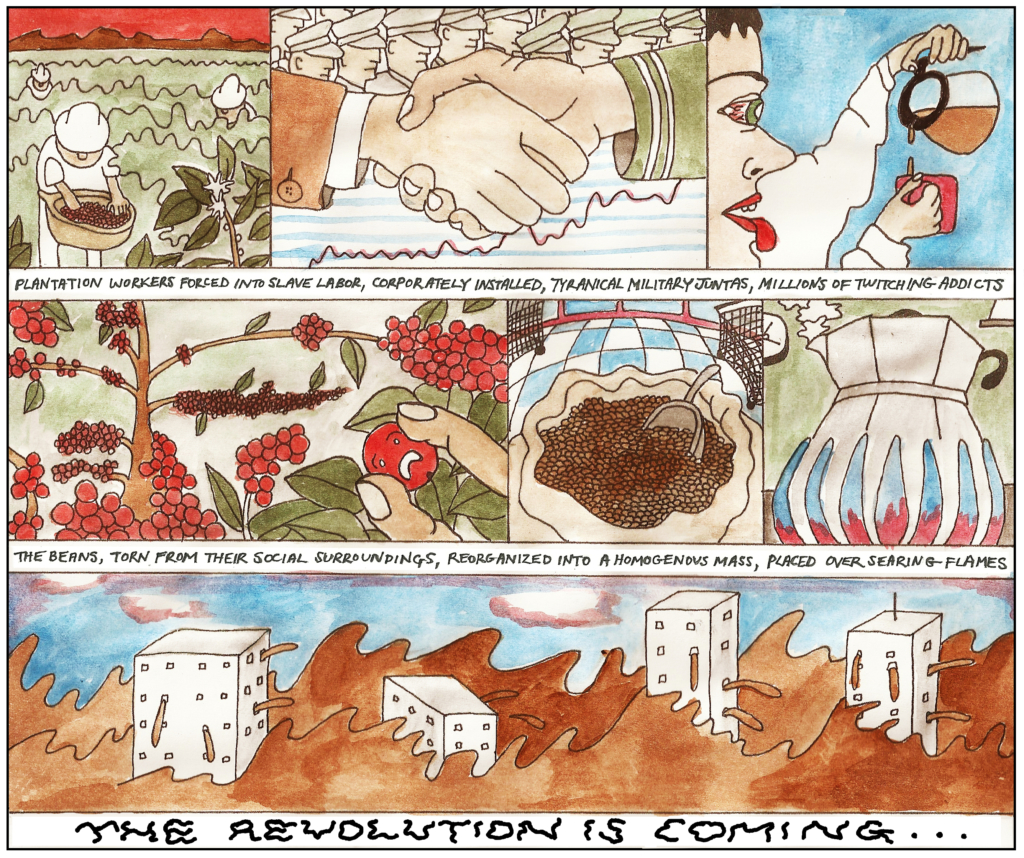 This revolution is real. You can see it for yourself. Walk down Cornhill from the Bank of England. Just before you arrive in front of the new 122 Leadenhall skyscraper, a big glass and steel phallus anchoring the tangled streets that surround it in existing conditions, you might notice the subversive presence of a branch of the Vodka Revolutions bar chain. If you keep going and then turn right at Aldgate, you’ll eventually find yourself by another bar called Revolution, this one in the shadow of the eleventh-century Tower of London, openly taunting the age-old seat of monarchical power with its promise of a new and better socialist future. If you then cross the Thames you’ll soon run into the base of Revolution Tours on Tooley Street; carry on towards Blackfriars Bridge and you’ll come across the political headquarters of the Revolution Sports Marketing Group. Along the way you’ll see countless signs and stickers promising a revolution in coffee, a radical disjuncture in handbags, militantly egalitarian mobile data packages, staplers and hole punchers that dare to dream of a new world that has no name. Communism sells.
This revolution is real. You can see it for yourself. Walk down Cornhill from the Bank of England. Just before you arrive in front of the new 122 Leadenhall skyscraper, a big glass and steel phallus anchoring the tangled streets that surround it in existing conditions, you might notice the subversive presence of a branch of the Vodka Revolutions bar chain. If you keep going and then turn right at Aldgate, you’ll eventually find yourself by another bar called Revolution, this one in the shadow of the eleventh-century Tower of London, openly taunting the age-old seat of monarchical power with its promise of a new and better socialist future. If you then cross the Thames you’ll soon run into the base of Revolution Tours on Tooley Street; carry on towards Blackfriars Bridge and you’ll come across the political headquarters of the Revolution Sports Marketing Group. Along the way you’ll see countless signs and stickers promising a revolution in coffee, a radical disjuncture in handbags, militantly egalitarian mobile data packages, staplers and hole punchers that dare to dream of a new world that has no name. Communism sells.
Narcissist at the End of the World — M.C. Mah, November 19
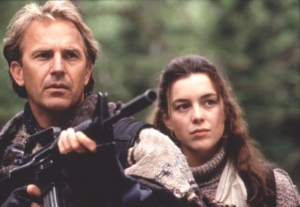 In 1997, many walked out on The Postman, starring and directed by Kevin Costner. Arguably, it is bad. But there’s a less plausible argument that the film was well ahead of its time. The protagonist survivor is an unreconstructed charlatan. Costner’s smirk — at having survived an inferred nuclear holocaust — would make Ted Cruz proud. He is not an advocate for sustainability. He has a modest talent for self-preservation, the lust for life required to relish his chances with a woman who, under ordinarily civilized circumstances, he wouldn’t have a chance with. In Oregon, people live under the boot of an Aryan mafia, deprived, but Costner himself is not resolved so much as irritable. In the face of death, he is rascally.
In 1997, many walked out on The Postman, starring and directed by Kevin Costner. Arguably, it is bad. But there’s a less plausible argument that the film was well ahead of its time. The protagonist survivor is an unreconstructed charlatan. Costner’s smirk — at having survived an inferred nuclear holocaust — would make Ted Cruz proud. He is not an advocate for sustainability. He has a modest talent for self-preservation, the lust for life required to relish his chances with a woman who, under ordinarily civilized circumstances, he wouldn’t have a chance with. In Oregon, people live under the boot of an Aryan mafia, deprived, but Costner himself is not resolved so much as irritable. In the face of death, he is rascally.
Their England — Dan Shewan, December 12
 My father is a good man. He loves his family, and worked hard for years to support us. He is thoughtful, considerate, and an excellent listener. Unfortunately, like many people of his generation who came of age in the Britain of the 1960s, he is also a racist. The saddest part is that he doesn’t even realize it. He casually and frequently uses expressions such as “coon,” “raghead,” and other racial slurs in everyday conversation. The notion that these epithets are offensive doesn’t even cross his mind.
My father is a good man. He loves his family, and worked hard for years to support us. He is thoughtful, considerate, and an excellent listener. Unfortunately, like many people of his generation who came of age in the Britain of the 1960s, he is also a racist. The saddest part is that he doesn’t even realize it. He casually and frequently uses expressions such as “coon,” “raghead,” and other racial slurs in everyday conversation. The notion that these epithets are offensive doesn’t even cross his mind.
This post may contain affiliate links.



